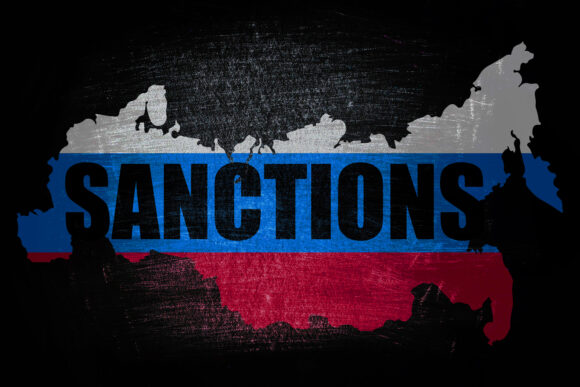Dozens of tankers have joined the shadow fleet this year compared with hundreds in previous years as the harshest Western sanctions yet target Russia’s oil exports and add to the difficulty of finding suitable vessels, shipping sources said.
The European Union and Britain last month imposed further sanctions on Russia over its war in Ukraine.
Together with U.S. restrictions, they mean more than 440 shadow fleet tankers face sanctions, including tankers Moscow needs to ship oil to its biggest buyers, China and India.
Read more: What’s in the EU’s 18th Sanctions Package Against Russia?
The shadow fleet of vessels is used by Venezuela and Iran, as well as Russia to evade Western sanctions. Typically, the vessels are old, their ownership is opaque, and they sail without top-tier insurance cover to meet international standards for oil majors and many ports.
Since the Ukraine war began in 2022, the shadow fleet has been especially used by Russia, which has relied on oil revenues to help finance its war effort.
In addition to the sanctions, the Group of Seven countries has imposed a cap over what price level Russian oil can be sold at, adding to trade complexities.
The size of the fleet is between 1,200 and 1,600 tankers, according to estimates from industry sources and analysts, including Lloyd’s List Intelligence and shipbroker Gibson. This represents an estimated fifth of the overall global tanker fleet.
That compares with a few hundred vessels operating before the Ukraine war, but sources say its growth has slowed year-on-year as the list of sanctions has grown and sales of second-hand ships have been under more scrutiny from authorities and legal compliance teams.
The estimate of the shadow fleet’s size does not include hundreds of smaller coastal tankers, which are not ocean-going but have transported oil, chiefly for Russia.
“Regulators are closing the net,” Anna Giacomello, analyst with British maritime cyber defense and risk intelligence company Dryad Global, said in a July report.
For all the risks, the potential for profit remains a lure for some.
“Operators may still enter the shadow fleet because it can be highly lucrative,” said Leigh Hansson, sanctions partner at law firm Reed Smith, who advises shipping and trading companies on oil sanctions compliance.
But she said the major established players would stay away and that only those with little experience of the shipping market may be willing to engage in risky operations, with older vessels that major ship insurers will not cover.
(Reporting by Jonathan Saul; editing by Barbara Lewis)
Was this article valuable?
Here are more articles you may enjoy.



 Insurify Starts App With ChatGPT to Allow Consumers to Shop for Insurance
Insurify Starts App With ChatGPT to Allow Consumers to Shop for Insurance  Trump’s EPA Rollbacks Will Reverberate for ‘Decades’
Trump’s EPA Rollbacks Will Reverberate for ‘Decades’  Experian Launches Insurance Marketplace App on ChatGPT
Experian Launches Insurance Marketplace App on ChatGPT  Judge Awards Applied Systems Preliminary Injunction Against Comulate
Judge Awards Applied Systems Preliminary Injunction Against Comulate 

